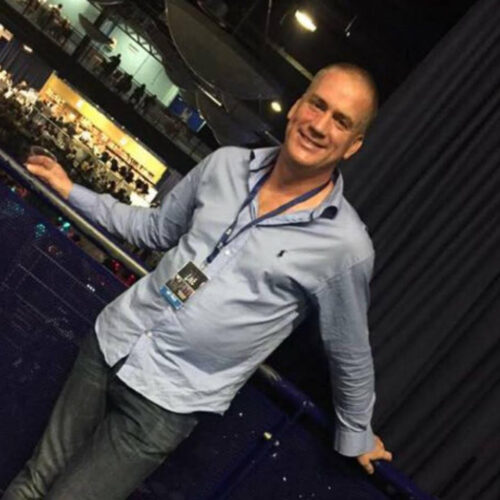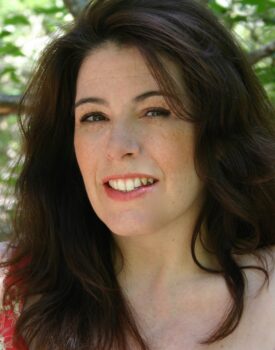Member Spotlight: Susan Joy Paul

How did you land your first book ghostwriting project?
In 2015, I was a college instructor, teaching five business courses to 125 online students. That was my nine-to-five (and often, five-to-nine), and on the weekends, I hiked and climbed all over Colorado and wrote guidebooks for Falcon Guides. Just before the summer school session began, the university notified me they were releasing most of their full-time instructors and replacing us with freelancers. Freelancing was becoming very popular, and the school bean counters realized they could pay these instructors less than full-timers and didn’t have to provide expensive benefits like healthcare insurance and retirement plans. Suddenly, I was out of a job.
I had to scramble to replace my income, and writing was my first choice. I’d had three outside adventure books published by Rowman & Littlefield (Touring Colorado Hot Springs, Hiking Waterfalls in Colorado, and Climbing Colorado’s Mountains), so my first instinct was to go after outdoor-related writing jobs. They’d be freelance gigs, and the irony wasn’t lost on me. I’d just lost my job to freelancers. But as they say, “If you can’t beat’em, join’em,” right?
Writing for publications like Alpinist and Out There Colorado was exciting. I got to review the wonderful film Meru, interview the great Ueli Steck, and for five years, write a biweekly newspaper column. But magazine and newspaper freelance rates didn’t match my teaching income. That’s when I got the idea to combine my MBA and earlier career experience in business, high-tech, and marketing with book writing. I went to the job site Indeed, plugged in some keywords, and applied for ghostwriting jobs. Two publishers—one focused on memoirs and the other focused on business-related prescriptive nonfiction—hired me to write books for other authors. My first ghostwriting gig was a book about how to be a freelancer! (As they also say, “You cannot make this stuff up!”) So, not only did I get a good paying ghostwriting gig, but I also got a crash course in freelancing from the author, a man who had turned remote work-for-hire into a highly successful career and lifestyle. That book led to more ghostwriting projects from several publishers, and after a year, I started getting my own direct-to-author ghostwriting gigs.
My writing career actually started many years earlier. In the 1990s, I wrote TV commercials for an ABC affiliate. That led to a position as a TV producer for cable provider TCI, where I wrote more television ads. I also wrote and produced a weekly 30-minute show for cable. Later, after completing an MBA in Technology Management and moving into high-tech, I wrote everything from in-house technical guides to marketing campaigns and customer-facing collateral for Fortune 500s. In hindsight, no matter what my profession, I’ve always been a writer.
What has been your secret to building a steady stream of ghostwriting clients?
Doing great work. You are only as good as your last book, so you must commit to every project and deliver a manuscript that makes you and the author proud. I wouldn’t want my name on the cover of a book I’m ashamed to recommend, and I would never put my authors in that position. When you make your clients happy, both publishers and authors, they bring you more work. My current ghostwriting gigs are a mix of projects from publishers that handle customer acquisition and referrals from former author clients.
People trying to break into ghostwriting have an uphill battle ahead, though, as the field gets crowded with many new ghostwriters and limited opportunities. Hiring a professional ghostwriter isn’t cheap, and not everyone who wants to write a book can afford the help. This has put the squeeze on even seasoned ghostwriters trying to stand out from the pack.
I used to turn down work almost weekly. At one point, I was writing fourteen books—three guidebooks for Falcon and eleven memoirs and how-to nonfiction manuscripts for other authors. That was my limit and these days, I would never take on that many projects. The high demand for ghostwriters that existed just a few years ago evaporated after COVID, when, during the lockdowns, many people decided to become writers. Soon, the industry was flooded with new ghostwriters, editors, proofreaders, and other writing and publishing “experts” eager to help authors write, edit, and publish their books. The problem was—and still is—that many of them weren’t qualified to write a text message, never mind a long-form manuscript.
I welcomed the qualified competition then and still do, but I also warn author-clients to do their due diligence before hiring someone to help them with their manuscript. Beware of anyone who reaches out to you in a DM, on social media, or on networking sites like LinkedIn. Ask for referrals. Ask for links to books they’ve worked on and get proof they did the work. It’s disheartening to see the number of charlatans that have inundated the industry in the last few years. If someone claims to be a “#1 Bestselling Ghostwriter” because their book was #1 in a subcategory on Amazon, that counts for literally nothing—that book may have only sold a few copies on a single day when no other books in that subcategory were sold, earning them that temporary status. The term “bestselling writer” or “bestselling ghostwriter” is a joke among professionals who know the deal, because nine times out of ten, their book sold fewer than 1,000 copies and their bestseller status refers to a list known for easy (though often costly) manipulation through marketing.
This brings me to another way to ensure a steady stream of clients: Don’t lie to them. Be 100 percent upfront and tell them the deal about publishing. It’s not the ghostwriter’s job to be a publishing expert, but you should at least have a handle on the basics of the industry so you can set realistic expectations about the future of a book for your author-clients. If you lie to a client or ignore signs that they have unreasonable or misinformed beliefs about publishing, you are only helping to proliferate myths that damage the industry and the trust so many of us have worked hard to develop with authors. Authors and publishers that trust you to tell them the truth bring you more work. They will not trust their friends, colleagues, and customers to a ghostwriter who misled them.
What do you wish clients understood about the ghostwriting process?
Most ghostwriters are freelancers, and when we don’t work, we don’t get paid. I’ve had authors take a three-month hiatus and come back expecting me to devote forty hours a week to their book. In the meantime, I’ve had to pick up new clients, and since those authors are now paying my bills, their books are my new priority. That doesn’t mean I won’t work with that earlier author to complete their manuscript, but they have to understand that freelancers aren’t salaried employees and when authors take time off, our incomes suffer.
For this reason, I usually have about six projects going at any one time. I might be interviewing two authors and drafting their manuscripts in Scrivener; developmental editing, line editing, and copyediting books in Word for two other authors; and working through revisions in Word or Google Docs with two others. This way, when an author disappears for a while, I still get to eat. Some ghostwriters charge a monthly retainer to avoid lapses in payments, but for me, if an author isn’t committed enough to their book to stay on track with it, it’s hard for me to stay excited about the manuscript, and I’d rather move on. I can’t be the only person championing its success—the author has to give a damn.
A red flag for me is when an author claims they want to hire a ghostwriter who’s as passionate about their book as they are. This usually means they aren’t passionate at all and think they can hire that sort of thing. My advice to those authors is that if they can’t muster the passion to commit a couple of hours a week to their book for at least three months—and more likely six months to a year—they may be writing the wrong book. Great ghostwriters are excellent writers, storytellers, project managers, and often, emotional support “animals,” but we are writing other people’s books and fulfilling other people’s dreams, not our own. For us, it’s a job. It’s how we eat and earn money to fulfill our own dreams. The heart and passion within the books we write must come from the authors. That’s the secret sauce in every book. It’s what makes each one original and unique—a book the author can be proud to put their name on and claim as their own to friends, family, and colleagues.
While we’re on the topic of originality, I have to mention that authors who use AI to generate content aren’t doing themselves any favors. The material is never original and often inaccurate. Professional writers can spot AI-generated content, even heavily edited content (which cannot be copyrighted and must be disclosed to publishers) a mile away. We refer to it by the technical term “bad writing.” I dissuade my author-clients from using AI and recommend they not hire writers or editors who rely on it to produce their books.
How would you describe your favorite type of project and client?
My favorite project is long-form nonfiction, but not too long—say, 50,000 words. The author-client knows the topic intimately and has personal experience with it. So this might be an entrepreneur/author who figured out a way to do something a particular way and developed insider knowledge that will be valuable to other entrepreneurs—their prospective readers. They aren’t afraid to open up about the mistakes they made and lessons they learned the hard way, and they aren’t stingy about sharing their insights with readers.
The best author-clients are coachable. They trust their ghostwriter to advise them on what makes good content and good writing and don’t take it personally when the ghostwriter corrects their grammar or tells them a particular story doesn’t serve the reader or belong in their book. However, authors should consider the author-ghostwriter relationship. Ghostwriters depend on authors for income, and we will only provide sound advice (and be ignored) so many times before giving up for fear the relationship will become contentious, and we’ll be out of a job. Ghostwriters don’t want authors to put out bad books, but there’s only so much we can do for authors who think they know it all when it comes to book writing and refuse to respect our experience and expertise.
I try to prep my authors by recommending they study ghostwriting before starting a project. Books like Write a Must-Read by A.J. Harper are invaluable resources that explain the author’s role in ghostwriting and what they must deliver to their writer and their readers to produce a must-read, which is what every author wants to do. A coachable author-client creates a dynamic and a tone the ghostwriter can lean into, instead of dreading. Though I love writing outdoor guidebooks, business books, and memoirs, I get excited about any book where the author-client is committed to not only satisfying their readers, but to blowing away their expectations. When they bring their A-game, I can deliver mine too. I need them to care enough about their reader so I can care enough about their book to deliver that must-read.
What are the best parts of this career?
There’s a saying that goes, “If you’re the smartest person in the room, you’re in the wrong room.” Every hour I spend with an author is a deep dive with an expert who knows much more than I do about the topic at hand. I may be the book-writing expert, but the author knows their subject intimately, and I get to learn all about it. For me, a knowledge junkie, it’s nirvana. I guess that part of the job actually does fulfill my dreams, to a point!
Another part I like is talking with other ghostwriters about their challenges and techniques for working with authors and turning out great books. I’m a constant learner, continually seeking to improve my business acumen, interview skills, and writing expertise. The Association of Ghostwriters has put me in touch with many great ghostwriters to learn from and people new to the profession with whom I can share my knowledge.
How can people reach you?
You can check out my profile on the Association of Ghostwriters website: https://associationofghostwriters.org/directory/susan-joy-paul/
If you’re serious about writing a book, schedule a free thirty-minute introductory call on my business website, Every Adventure Book Guide: https://www.everyadventurebookguide.com/contact











